Reading Skills Normal Reading Worksheets for Ages 4-6
6 filtered results
-
From - To
Unlock your child's potential with our "Reading Skills Normal Reading Worksheets for Ages 4-6." Perfectly tailored for young readers, these engaging worksheets nurture essential reading abilities, combining fun and education. Through vibrant illustrations and interactive exercises, children strengthen phonics, comprehension, and vocabulary skills. Each worksheet is designed to match your child's development level, making learning enjoyable and effective. Ideal for both classroom use and home practice, our worksheets offer a comprehensive approach to early reading success. Give your child the gift of confident reading and set the stage for a lifetime of learning with our expertly crafted resources.
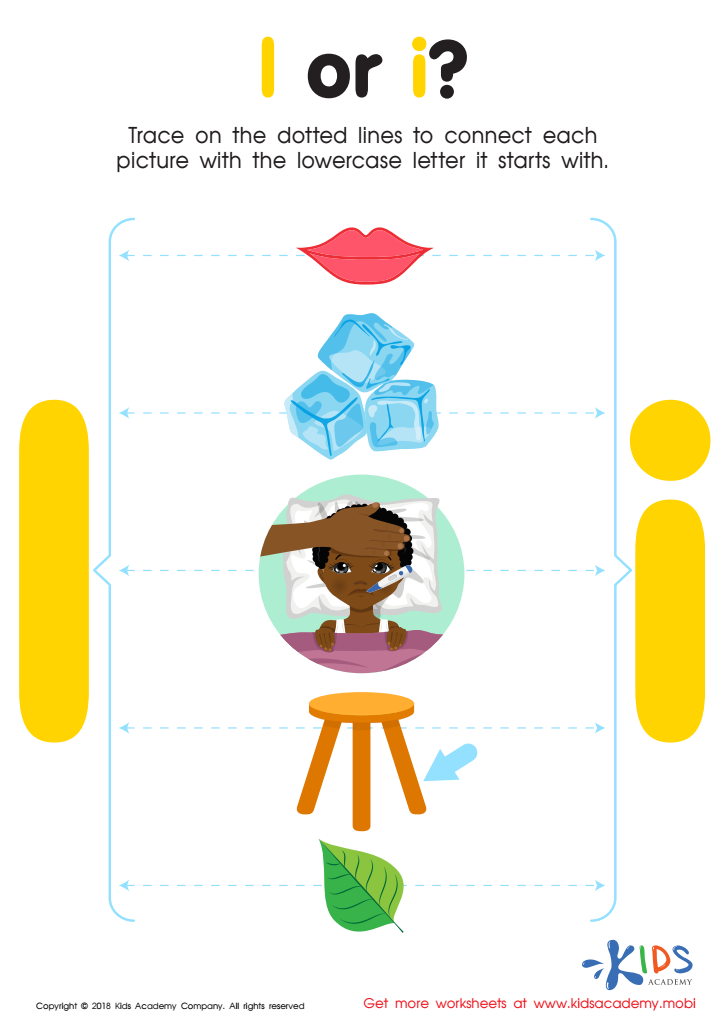

l or i? Worksheet
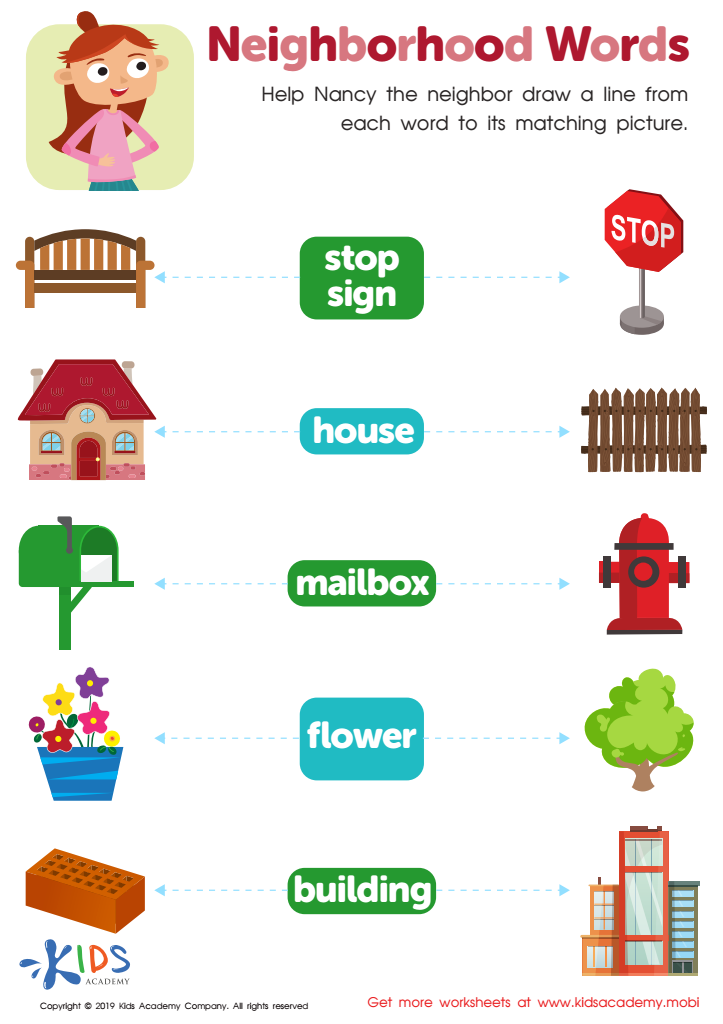

Neighborhood Words Worksheet


Short Vowel Eggs Worksheet
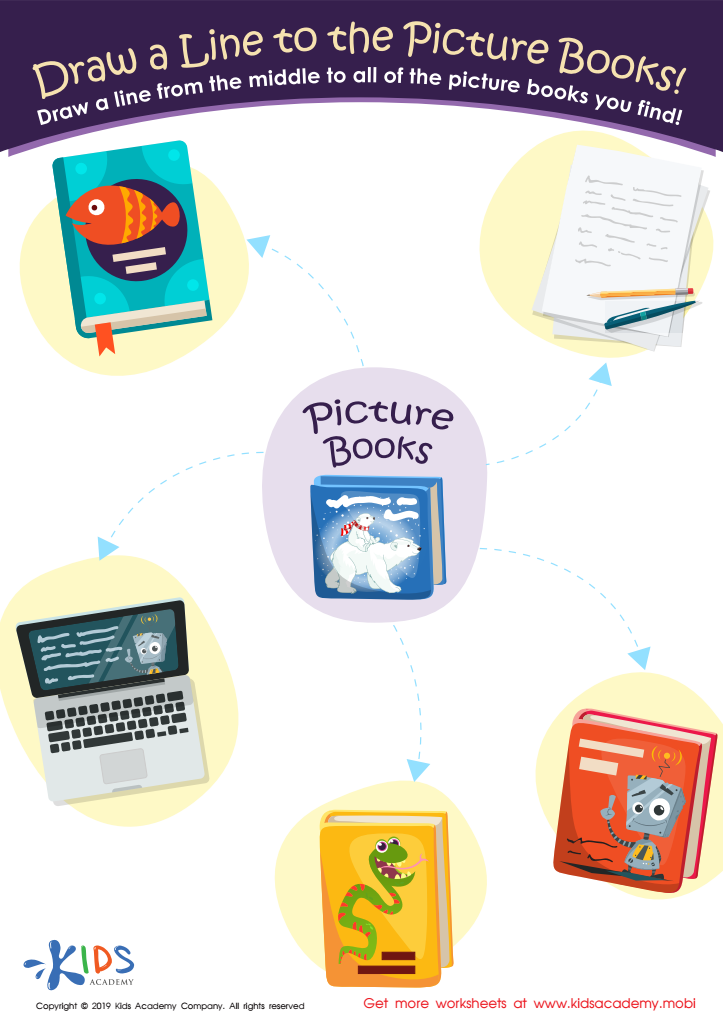

Draw a Line to the Picture Books Worksheet
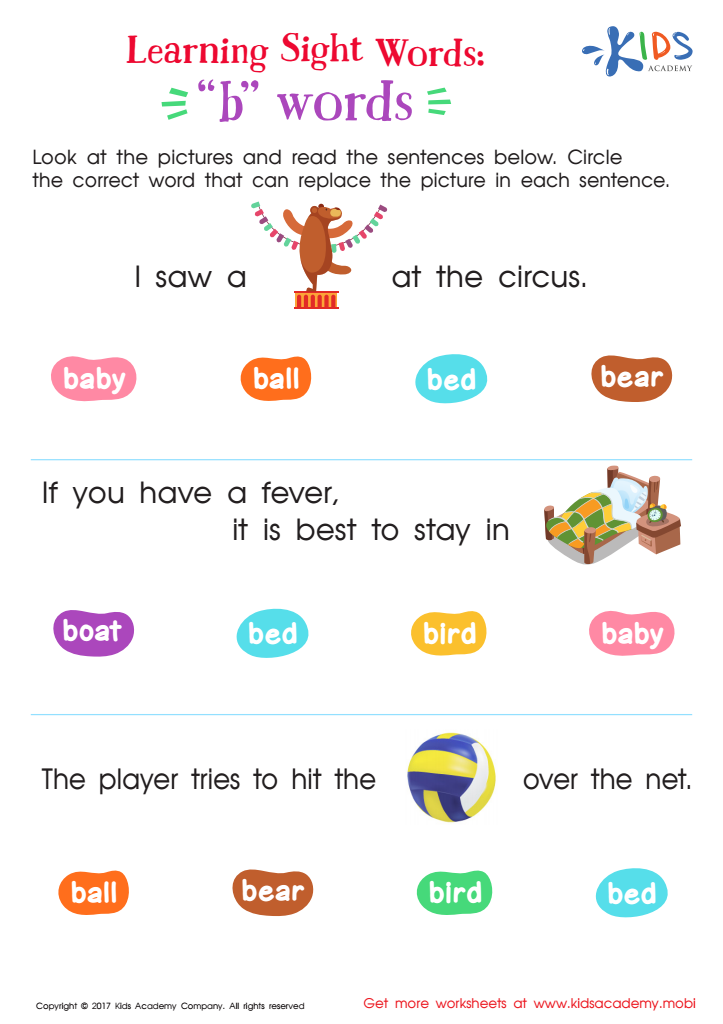

"B" Words Printable Sight Words Worksheet
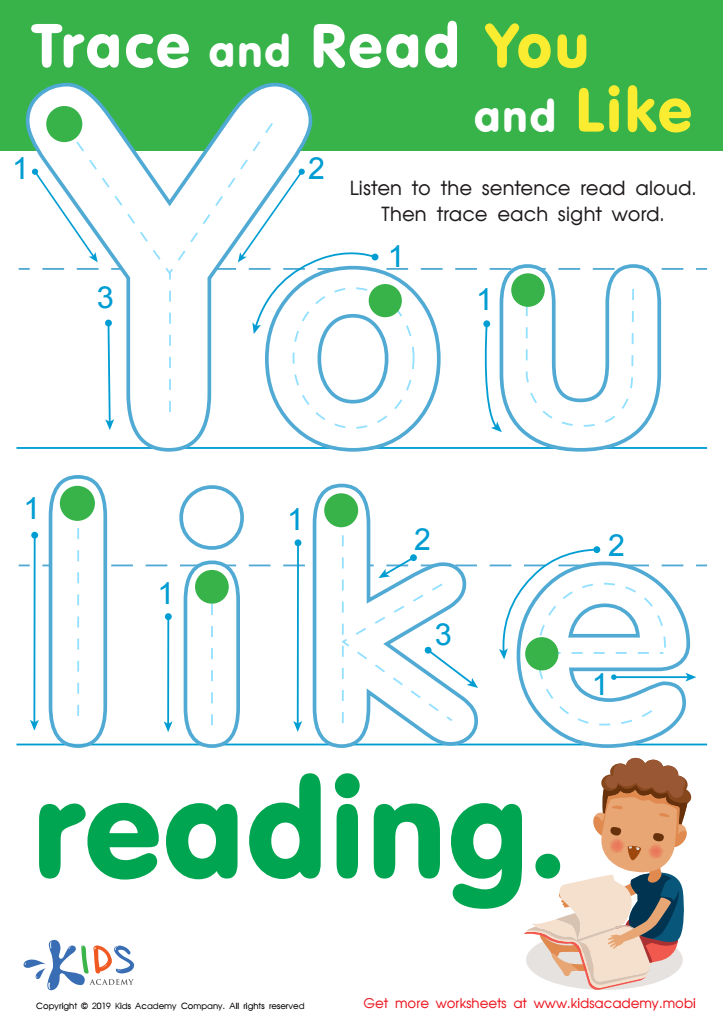

Trace Read You Like Worksheet
Parents and teachers should prioritize developing reading skills among children aged 4-6 because this critical period forms the foundation for future learning. During these early years, children are exceptionally receptive and able to absorb new information rapidly. Introducing them to reading at this stage helps develop not just literacy, but cognitive skills, including attention, memory, and comprehension. These are essential for academic success across all subjects.
Strong reading skills also enhance emotional and social development. Through stories, children learn to empathize with characters, understand different perspectives, and manage their own emotions. Additionally, shared reading activities can strengthen parent-child and teacher-student bonds, fostering an emotional connection to learning.
Vocabulary acquisition is another crucial benefit. Children’s books introduce new words and concepts in an engaging context, significantly expanding their language skills. This growing vocabulary will facilitate more effective communication and complex thought processes in later years.
Moreover, early reading experiences fuel a love for books and learning. This intrinsic motivation can lead to greater curiosity and lifelong learning. Poor reading skills at this age can result in frustration, lower academic achievement, and reduced confidence, impeding overall development. Thus, investing in reading skills for children aged 4-6 sets the groundwork for a successful, enriched, and balanced life.
 Assign to My Students
Assign to My Students





















